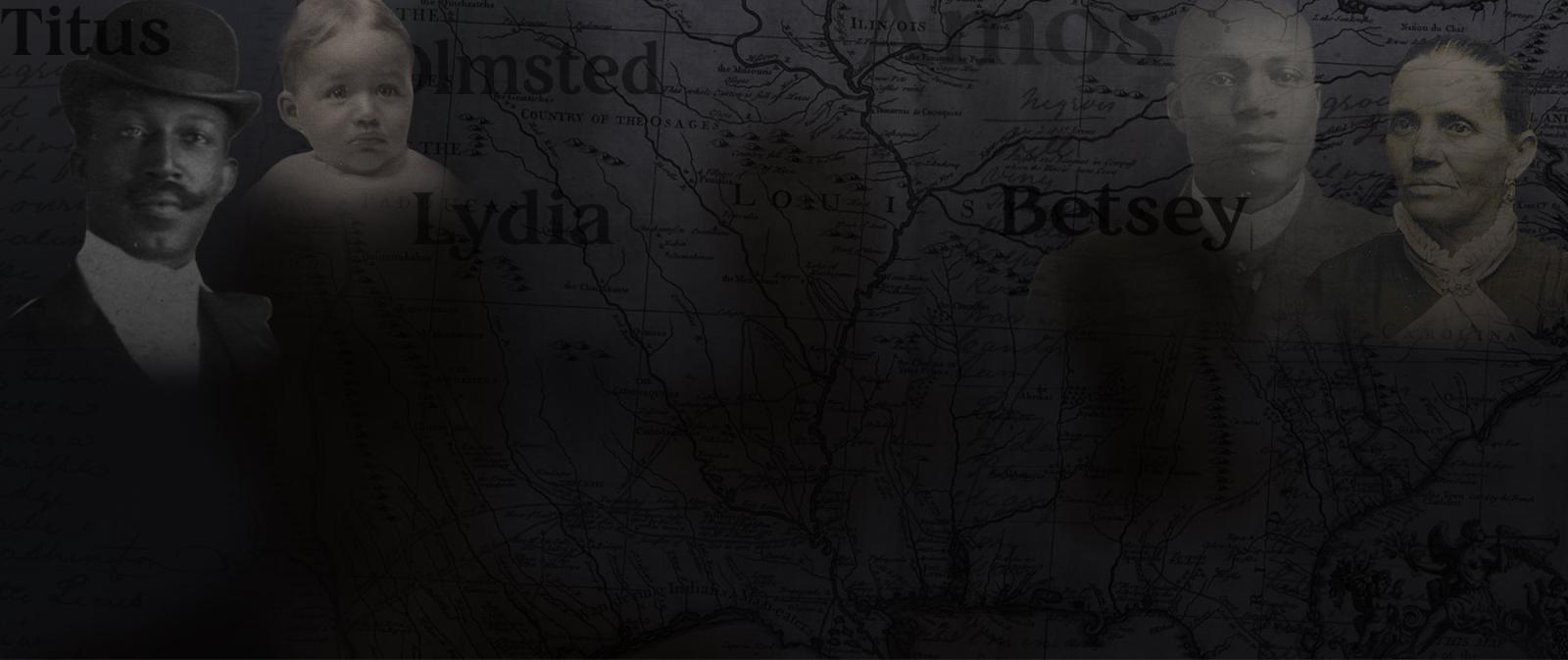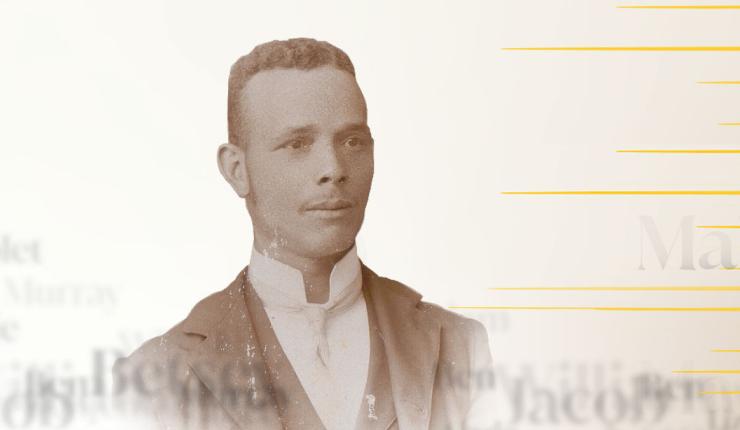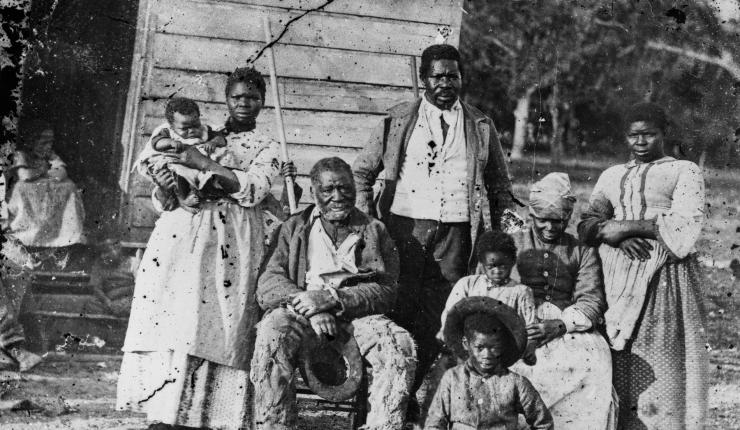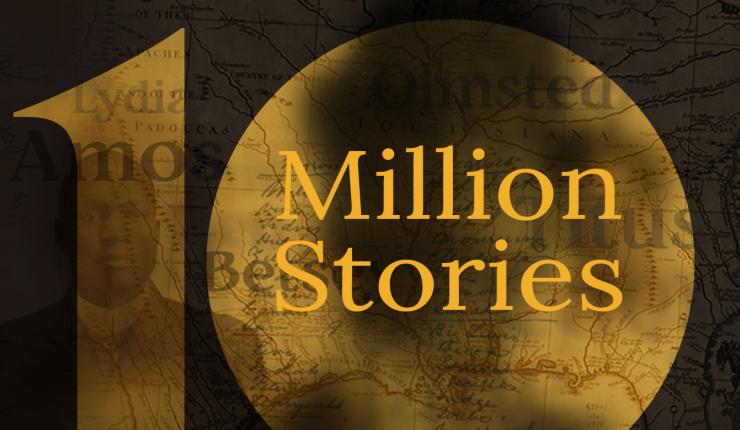
Frequently Asked Questions
10 Million Names is a collaborative project dedicated to recovering the names of the estimated 10 million men, women, and children of African descent who were enslaved in pre- and post-colonial America (specifically, the territory that would become the United States) between the 1500s and 1865.
The project seeks to amplify the voices of people who have been telling their family stories for centuries, connect researchers and data partners with people seeking answers to family history questions, and expand access to data, resources, and information about enslaved African Americans.
American Ancestors, a nonprofit center for the study of family history, heritage, and culture, founded in 1845—the country’s oldest genealogical institution—has undertaken this project in collaboration with organizations, individuals, and scholars dedicated to African American history and genealogy. Collaborative partners include the Afro-American Historical and Genealogical Society, FamilySearch, the New Bedford Historical Society, and Daughters of the American Revolution. We are actively welcoming new partners.
10 Million Names will continue until we reach our goal of identifying as many of the ten million people of African descent enslaved in America as possible and the project will grow and expand for decades to come.
10 Million Names is funded through philanthropy. Individuals, foundations, and corporations provide support.
More than 44 million Americans living today are estimated to descend from ancestors who were enslaved between the 1500s and 1865 in the territory that is the present-day United States.
By recovering and restoring the names of enslaved people, descendants will have more opportunities to connect to their family histories, and all people will have access to information to further historical understanding.
People want to know where they came from. Knowing how one’s personal family story connects to history is powerful. Knowing the names, origins, and life stories of one’s ancestors can be life-changing.
Before the mid-20th century, data about enslaved people of African descent and their descendants was deliberately obscured, altered, or simply unrecorded in the first place. The institution of slavery itself depended upon the erasure or interruption of genealogical knowledge. In the last several decades, large historical datasets about African Americans have begun to be digitized and made available to scholars and individual researchers. This data is one tool for understanding African American genealogy. Research scholars, statisticians, public historians, and genealogists can use datasets to gain historical insights and correct inaccuracies in the public narrative. Individuals can use the data to connect their own personal stories to history.
Document-based data is not the only tool people use to understand and pass on family histories. African American family history is rooted, in part, in African and indigenous oral traditions and genealogical practices. For centuries, enslaved Africans and African Americans shared stories about their ancestors and homelands with their children and grandchildren. Oral history is a critical source of information about ancestors, folkways and traditions, and indeed genealogical knowledge. 10 Million Names will amplify, supplement, and support the documentation of family stories and oral histories in a comprehensive, free online research tool.
10 Million Names will work with a vast network of collaborative partners, genealogists, and scholars to identify records and original source material pertaining to people of African descent enslaved in America before emancipation.
Names will be recovered and restored from records and source materials and made available in searchable databases to help facilitate research, connecting descendants with their ancestors.
Our method is to eliminate the 1870 “brick wall” by knocking it down from the past: it’s much easier to trace enslaved people forward to living descendants than to complete the same task in reverse.
The primary goal of 10 Million Names is to recover the names of enslaved people of African descent. These names will be made available to the public through free, searchable online database to help people connect to their family history. All information recovered will be free, public, and available via a permanent website.
As research and transcription efforts continue, 10MillionNames.org will be updated on a rolling basis with newly uncovered databases, names, and family trees. Content will be added incrementally as the work advances.
Records and names are added to 10MillionNames.org as often as possible, as research, transcription, and data processing move forward. To stay informed about new additions and project developments, sign up to receive email updates here.
Yes! Please submit a project by emailing us on 10mn@nehgs.org.
No. Anyone can access the data via the website. If people do not have an Internet connection but wish to know results, American Ancestors will make every effort possible to answer questions over the phone or by mail. Our goal is to provide the broadest possible access to this information.
While individuals and descendant communities have been recording and telling their family stories for centuries, there are challenges to finding centralized document-based records about enslaved people, as this data was often obscured, erased, or not recorded in the first place. Over the decade, widespread digitization efforts and even more recent technology-driven advances in the field of family history have improved the chances that large-scale genealogy research projects of this magnitude can succeed.
American Ancestors, established in 1845, is the country's oldest genealogical society, and a leading nonprofit organization in family history.
We believe everyone should have the opportunity to connect with their family history.
Through our nearly two centuries as a professional scholarly center for the study of family history in America and beyond, we have led or participated in many projects to tell the diverse histories of families in America, including regularly producing publications, programming, and research materials for African American family history for more than forty years.
Through our long institutional history, we have developed research expertise, collections, and the technology required for large-scale data-driven genealogical and historical projects.
We have relationships with many family historians, scholars, archives, libraries, historical organizations, and cultural institutions who will help achieve the project goals.
Yes. For more than than four decades, American Ancestors has published books and articles about African American genealogy, and provided educational programming on African American genealogy and history.
For many years, we co-authored a column on African American genealogical topics for TheRoot.com, with Henry Louis Gates, Jr. Our research team currently supports and reviews the research for Gates’s popular PBS show “Finding Your Roots.”
In 2018, we launched a free public website that contains family trees and extensive information about the 300+ men, women, and children who were sold by Georgetown, Maryland’s Jesuit priests. Through this site, anyone can search a free, online database containing all the names of the Georgetown enslaved ancestors and their 10,000 descendants, as well as, download pdfs of entire family histories, and listen to oral histories recorded by living family members.
10 Million Names is engaging institutions dedicated to African American history and genealogy, including the Afro-American Historical and Genealogical Society, and non-profit genealogical organizations such as FamilySearch International.
The project is advised by a council of prominent scholars of African American history and studies, including Dr. Kendra Field, Associate Professor of History and Director of the Center for the Study of Race and Democracy at Tufts University; Vincent Brown, Charles Warren Professor of History, Professor of African and African American Studies at Harvard University; Dr. Kerri Greenidge, Mellon Associate Professor in the Department of Studies in Race, Colonialism, and Diaspora at Tufts University; Dr. Brandon Terry, the John L. Loeb Associate Professor of the Social Sciences at Harvard University; and Dr. Thavolia Glymph, Peabody Family Distinguished Professor of History and Professor of Law at Duke University.
10 Million Names is a special initiative of American Ancestors, a nonprofit genealogical and historical entity established in 1845.
The 10 Million Names Advisory Board, which advises the project on strategic direction, collaborative partnerships, fundraising, and serves as public-facing advocates for the project, includes Gwill York, Chair; Kendra Field, project Chief Historian, Richard Cellini, project Founding Director, Henry Louis Gates, Jr., Ambassador Michael A. Lawson, Paula Williams Madison, Mattie McFadden-Lawson, and honorary advisor, Justice Ketanji Brown Jackson.
Yes. 10 Million Names can only succeed in its mission through close collaboration with organizations dedicated to African American genealogy, culture, and history, along with a wide range of historical, cultural, and educational partners. Current collaborators, to name a few, include the Afro-American Historical and Genealogical Society, FamilySearch, the New Bedford Historical Society, and the Daughters of the American Revolution. We are actively welcoming new partners, including individual genealogists, family associations, and descendant communities. You can view a full list of our collaborators here.
Yes. Anyone can provide financial support for 10 Million Names. Please see 10MillionNames.org/Support-tmn for more information on how to donate. 100% of the money raised for 10 Million Names goes to directly support the project.
Yes. Please contact education@nehgs.org about a webinar or in-person educational event for your organization.
Do you have a question not covered here? Email us at 10mn@nehgs.org and our team will be happy to assist you.



